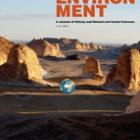Goebel McDermott, Anthony, and Ronny J. Viales Hurtado. “Blaming It on the Weather: The Role of ‘Inclement’ Rainfall in Society-Nature Relations in Liberal Costa Rica (1860-1940).” Global Environment 6 (2011): 8–67. Republished by the Environment & Society Portal, Multimedia Library. http://www.environmentandsociety.org/node/7555.
This article seeks to shed light on some of the many possible interactions between changes in rainfall regime, one of the climatic factors with the greatest bearing on the history of human society, and the economic and socio-environmental dynamics of Costa Rica. While Costa Rica was developing into a Nation-State and defining its role as an agricultural exporter in the global market, new liaisons with the biophysical environment were being developed, guided by the irresistible ideology of “progress”. Significantly, this time period largely coincides with current process of institutionalization of science in Costa Rica, and the State’s urgent need to understand the specific features of the country’s rainfall regime in connection with its efforts of expansion and diversification of commercial farming, given the indisputable impact of precipitations on the agricultural sector and infrastructure development, both pivotal elements of the liberal economic project. Parting from this contextual base, the article seeks to analyze the operative capacity of this “modern”, “scientific”, and “macroeconomic” vision of rainfall and its effects, the unequal and socially differentiated character of institutional response in the face of floods and other “disasters”, as well as the concomitant “culpability” discourse placing the blame for these disasters on Nature as a means to justify the priority given to “national” infrastructure over the needs and wishes of many citizens. We will also briefly look at promising themes for future research, such as the relationship between climate and property value, as well as the impact of rainfall on the performance of the agro-export model, the economic basis of liberal Costa Rica.
— Text from The White Horse Press website
All rights reserved. Made available on the Environment & Society Portal for nonprofit educational purposes only, courtesy of Anthony Goebel McDermott, Ronny J. Viales Hurtado, and XL edizioni.


